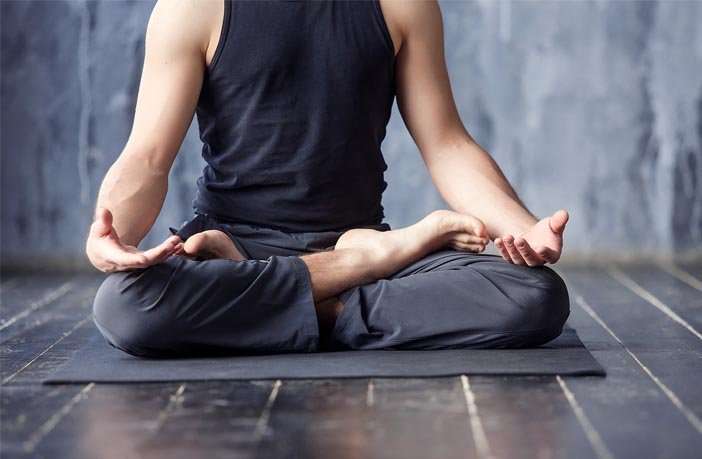Practicing yoga can help reduce paranoid thoughts, memory problems, trouble concentrating, and obsessive thoughts in prison inmates, according to new research published in Frontiers in Psychiatry.
“My research is in the field of psychiatry with three distinct branches. One of these branches has focuses on integrated care and complementary medical treatment methods (such as yoga) of mental ill-health,” said study author Nóra Kerekes of University West in Trollhättan.
“We know that changing the brain to alter behaviours may not necessarily/inclusively require pharmacy or any invasive form of therapy. I, as a neurobiologist, was always interested to understand more about how complementary interventions (diet, physical activity, acupuncture) change the brain to alter behaviours, suffering, and functioning.”
The researchers examined the impact of yoga on the mental health on 152 male and female inmates from several high- and medium-security class prisons.
Half of the inmates participated in a 90-minute yoga class once per week for 10 weeks. The other half (the control group) participated in 90 minutes of other forms of physical exercise once per week for 10 weeks.
Both groups of inmates reported significantly improved psychological distress levels. But yoga had benefits above and beyond what physical exercise alone provided.
“Our study provides evidence about the positive effects of physical activity on our mental health, which is nothing new by itself,” Kerekes said.
“What is new is that we show that yoga not only helps with symptoms of depression, anxiety, hostility, but has specific effect on improving memory, concentration, decreasing paranoid and obsessive thoughts and somatization — the projection of mental complaints to bodily dysfunctions.”
“These effects of yoga joined with those previously shown effects (increasing impulse control and attention, decreasing antisocial behaviour and improving emotional well-being) may be very important parts of treatment strategies for defined/specific groups of people,” Kerekes told PsyPost.
The study provides new evidence about the positive effects of yoga. But like all research, it includes some limitations.
The research was based on Swedish inmates, and may not generalize to prison inmates in other countries. Also, the majority of the participants were men.
“We did not collect any biological marker (blood, saliva, etc.) which would provide information about the underlying neurobiological and physiological changes in the body, which definitely would have been very interesting,” Kerekes said.
“One puzzle piece that often is asked: what is the role of yoga in the prevention of reoffending? Our study did not give answer to that question, which definitely something that should be investigated in future studies.”
“I am honored to be giving the possibility to lead this yoga study within the Swedish Prison and Probation Services. During the study, and even now when we analyze the data, I worked with fantastic people who each had a crucial place and roll and without whom the study and these publications would not be possible,” Kerekes added.
The study, “Yoga Practice Reduces the Psychological Distress Levels of Prison Inmates“, was authored by Anis Sfendla, Petter Malmström, Sara Torstensson and Nóra Kerekes.

greasyEUtech on October 7th, 2018 at 17:51 UTC »
When reading the headline I thought hey this is totally for me until I got to the part where it said for prison inmates. Maybe Orwell was right.
Z4NGRIA on October 7th, 2018 at 17:44 UTC »
Yoga is very common in Swedish prisons.
Flubber_Taco on October 7th, 2018 at 16:27 UTC »
Think it'll work on Uni students?